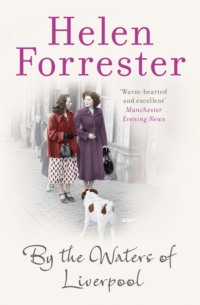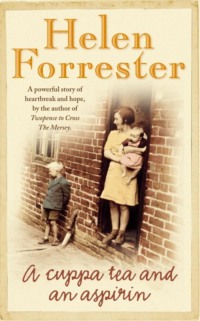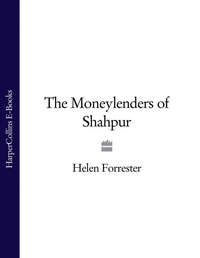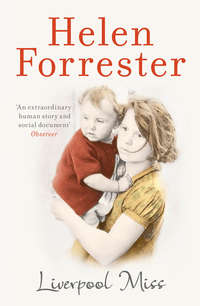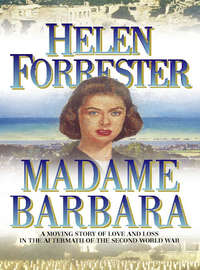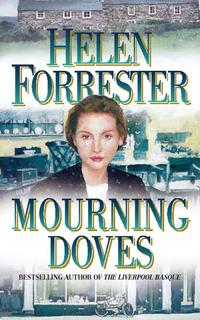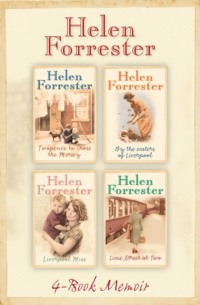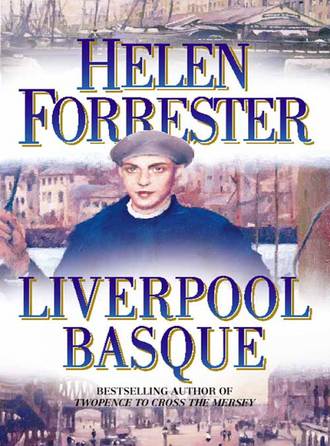
Полная версия
The Liverpool Basque
In the narrow, medieval street sloping down to the river Nervión, he felt, at first, closed in, and unnerved at facing a number of strange urchins, who looked him over as if he were a peculiar animal of some kind. When the boys discovered, however, that he had never tried to play pelota vasca, they produced a rock-hard ball and showed him how to hit it against a wall with his bare hands. They approved of him when he bore stoically the pain of it, and he was almost overwhelmed by their friendly advice and instruction; he went back to his great-uncle’s house with several self-appointed coaches in tow, and badly bruised hands.
Before the evening meal, his hands were washed and regretfully cooed over by his two second cousins. Grandpa laughed, and said they would soon toughen up; he showed Manuel two of his fingers which had been disjointed when he had played as a young man.
At the end of a week, he was leaping about in front of the wall with the same abandonment – and lack of finesse – as the other youngsters. Then he was told that he and his mother and Francesca would be going up into the mountains to see Grandpa and Grandma Echaniz, while Juan and Micaela remained in Bilbao.
As a baby and a toddler, he had already made three journeys to Spain, but he had few clear recollections of them. Going first by train and then in a rickety donkey cart up narrow roads into the foothills was a new adventure. He tucked his small aching hands underneath his jersey, and was relieved not to have to play pelota that day.
Grandpa and Grandma Echaniz were younger than Micaela and Juan Barinèta, and Little Manuel noted that they did not talk so much. They greeted the little family, however, with bear hugs and kind kisses; small in stature, sun-burned and stolid, they were not otherwise particularly demonstrative, but it was obvious that they were fond of their beautiful daughter-in-law and very taken by Francesca’s blue eyes and red hair.
Rosita explained to Manuel that, once upon a time, his father had had two brothers to play with up here in the mountains, but they were now with God. Later, Manuel felt that perhaps the loss of her two middle sons accounted for Grandma Echaniz’s affection for himself. She took him into the big living-room of their wooden house and made him her special companion. He had a great time, helping to punch down bread dough and learning how to milk a cow – he had stood, astonished, watching a pail slowly fill with milk. His grandmother let him try to milk a particularly patient cow; and he was wild with excitement when he managed to spray himself with milk. She gave him a small basket and showed him where to find eggs from the hens and ducks. He was warned not to go too close to a nanny-goat tethered to a tree in case she butted him. He discovered with amazement that she also produced milk.
The donkey lived under the house, in a small stable, next to a series of storerooms, though, since it was summertime, it was left to graze in a little field near the house; his grandfather amused him by giving him a ride on it occasionally.
While Rosita sat on the high front steps in the sun and nursed Francesca, Grandpa Echaniz took him, one morning, further up the mountain to see his father’s surviving elder brother, Uncle Vicente, who was shepherding the family’s flock of sheep. The climb made all the aches he had acquired playing pelota ache a lot more.
At first, he was nervous of the sheep, which looked quite large to him, despite the fact that they had been sheared of their winter coats. The bellwether ram lifted its nose out of a weed patch and looked him up and down with cold brown eyes. Then, satisfied, it returned to its grazing. When Manuel moved, the other sheep bounced away from him, towards the bellwether, whose bell tinkled as he led the flock a little away from the strangers.
They approached a series of rough shelters, fronted by a stone hut, but could not find Vicente. While his grandfather looked for him further up the mountain, Manuel turned to look back along the path they had just traversed.
Far below him lay the valley dark with trees, interspersed with tiny fields nearly ready for harvesting. From the chimneys of toy houses curled the smoke from kitchens like Grandma’s. He could see a whole village, with a church spire, and a road winding through it. It was very quiet, except for the occasional jingle of the bellwether’s bell and the shush-shush of the sheep as they followed him. To a child brought up amid the constant racket of machinery and traffic, it felt unearthly, and he was relieved when Uncle Vicente shouted that he was coming down; he had been sitting on a promontory further up, from which he could see the whole flock at a glance. When Manuel looked up, he saw a tall, lanky man coming slowly down towards his grandfather, who had climbed a little way to meet him. From under the man’s black beret fell the same golden hair as his father had, and the sun glinted on his beard, stained with tobacco smoke just as his father’s was.
Vicente greeted his father, and then came running down the slope towards Manuel. He flung down his staff and picked the boy up to toss him in the air with a friendly shout. Then he put him down on his feet again, and, while he held the child’s hand, he looked into his face. ‘You look exactly like my mother,’ he announced. ‘Her dark hair and eyes. Doesn’t he, Dad?’
Конец ознакомительного фрагмента.
Текст предоставлен ООО «ЛитРес».
Прочитайте эту книгу целиком, купив полную легальную версию на ЛитРес.
Безопасно оплатить книгу можно банковской картой Visa, MasterCard, Maestro, со счета мобильного телефона, с платежного терминала, в салоне МТС или Связной, через PayPal, WebMoney, Яндекс.Деньги, QIWI Кошелек, бонусными картами или другим удобным Вам способом.




